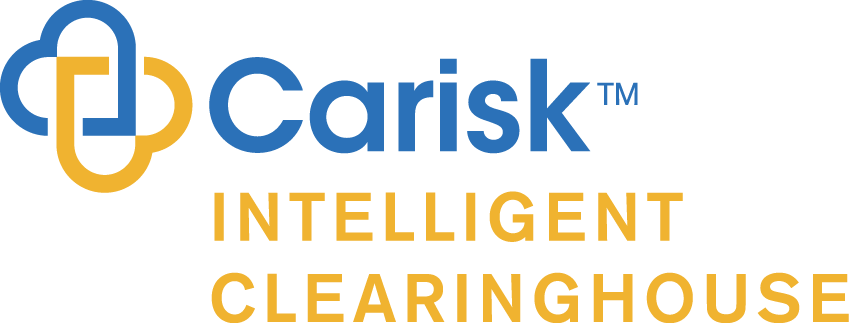MEDENT has partnered with Carisk Partners, a specialty risk transfer, care coordination company, to ultimately provide enhanced management of revenue cycles, faster payment and improved administrative processes. For over 10 years, Carisk Partners has remained MEDENT’s clearinghouse of choice for a seamlessly integrated and trusted end-to-end practice management, EHR and e-billing solution for WC and No-Fault Auto. This article was written by Sally Balioni.
Background: The N.J. Workers’ Compensation EDI Law (Senate P.L. 2016 C64), and No-Fault Auto Law (Senate P.L. 2017 C369) as issued by the State of NJ Department of Labor and Workforce Development and published in the New Jersey Register make it mandatory for all workers’ compensation and no-fault auto healthcare practitioners, insurance carriers, TPAs, and medical management companies to and process the bills electronically. This legislation is currently in effect and allows for an adoption period after which it becomes mandatory. Deadlines for mandatory electronic submission are September 1, 2019 for NJ No-Fault Auto and November 1, 2019 for Workers’ Compensation.

There’s no reason to wait another day. Payers have been implementing clearinghouse services in anticipation of the enactment dates with most NJ payers ready to accept electronic billing now. Healthcare practitioners can act now and begin enjoying the benefits of electronic bill processing – better known as Electronic Data Interchange (EDI).
What is healthcare EDI? It is more than just a way to communicate; it is a structured opportunity to transmit data between computer systems, governed by industry standards that ensure accurate transmission of medical claims. Over 95% of health insurance bills are transmitted electronically today. However, for workers’ compensation and auto fewer than 30% of bills are transmitted electronically. States have strict e-billing rules and responsibilities for providers and claims administrators. Most e-billing is handled by electronic billing clearinghouses who have the technology needed to compliantly process them. The new legislation demonstrates the significance of electronic billing in streamlining processes and reducing costs, which requires advanced tech-enabled capabilities.
New Jersey healthcare providers will benefit from enhanced management of their revenue cycles, with e-billing leading not only to faster payment, but also increased efficiency. Implementation of electronic filing of medical bills leads to an overall reduction in administrative costs and results in a more efficient process. Thanks to this new legislation, NJ heralds a welcome era of paperless transactions for workers’ comp and no-fault auto medical claims, with all data to be transferred electronically rather than manually on paper.
Visit this guide by Carisk Partners to see a summary of recent state-by-state requirements announced that relate to the electronic billing of workers’ compensation and auto claims
Here are five key points to understand about the legislation and the benefits to healthcare practitioners:
Electronic processing – Under this newly enacted legislation:
- All healthcare practitioners or their billing representative shall submit medical bills and supporting documents electronically in accordance with the established guidelines
- Insurance carriers, medical management companies, or their third-party administrators shall accept all bills electronically and acknowledge receipt of complete electronic medical bills to the submitting parties in compliance with the established guidelines
Compliance – The legislation requires all healthcare providers and hospitals who submit over twenty-five (25) workers’ compensation medical bills per month to now provide electronic bills for payment on standardized forms compliant with guidelines. A complete electronic bill meets the following criteria:
- Treatment information normally submitted on a CMS1500 form is converted to electronic file know as 837 and is sent electronically to the administrator
- The bill includes all medical reports attached electronically providing specific information required under the guidelines established
Acknowledgement– Insurance carriers, medical management companies or their third-party administrators shall acknowledge receipt of a complete electronic medical bill to the submitting party
HIPPA Compliance– all parties must ensure electronic medical information exchange is confidential and meets privacy standards
Timelines – Both laws were approved in 2018 and include adoption periods for implementation, however nothing prevents from earlier adoption of electronic bills transmission. The adoption periods end on the following dates after which submission of electronic medical bills is required:
No-Fault Auto: September 1, 2019
Workers’ Compensation: November 1, 2019
While other industries such as banking and travel have utilized EDI for decades, the healthcare industry lagged for many years. Now it’s time for workers’ comp and no-fault auto providers to follow the path to improved efficiency, reduced administrative costs and faster payments.
Contact Us
To view the combined MEDENT Carisk solution for Workers’ Compensation and Auto e-billing, contact MEDENT at 315-255-0900 or visit MEDENT.com. If you are an existing MEDENT user and would like to enable the Carisk Intelligent Clearinghouse solution for Workers’ Compensation and Auto e-billing, contact cicsales@cariskpartners.com or visit www.cariskic.com.
Comments are closed